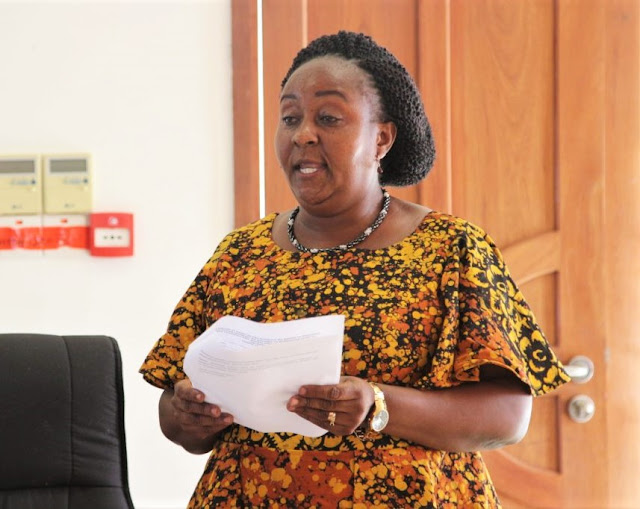On behalf of the minister of sports and culture, Hon Mohammed Mchingerwa, Ms Consolota Mushi, the managing director of Kiswahili Council in Tanzania (BAKITA), has said avoidance or negligence of the use of Kiswahili in performing official activities in Tanzania is punishable by law.
Ms Consolata said the minister does not emphasize anything odd but rather a legal and everyone’s responsibility that had been neglected for so long by everyone in the country. The minister stresses communications between public offices or departments, public cooperation, and private firms should be performed using the Kiswahili language, as directed by law number 27 of 1967,
Consolata said that the directive of implementation of the practice is not new in Tanzania, as it was passed since 1967 by former Prime Minister Rashid Kawawa. Unfortunately, there hasn’t been a practical implementation of the law.
On World’s Swahili Day, July 7, 2022, that in Tanzania was celebrated in Dar es Salaam, Dr Philip Mpango, Tanzania’s Vice President, who was the guest of honour, stressed the importance of the law and called up authorities responsible for Swahili to take actions to ensure the law is practised.
According to Consolata, if the document is to be shared with a non-Swahili speaker, a copy of Swahili containing the same message should be attached along with the English document.
The emphasis on Swahili use was not only limited to the public & private offices but also on naming streets and roads, outdoor adverts such as billboards, contracts that directly concern the citizens, and medical prescriptions and all instructions should all use Kiswahili language.
Consolata says this implementation follows the country’s laws and regulations, citing the 2019 Kiswahili Council regulations, which for instance, in regulation 47, instructs the use of Kiswahili even on industrial goods and imported goods.
However, The law does not restrict the use of any other language, but Kiswahili should always appear as the priority to Tanzanians to benefit the end consumer.


